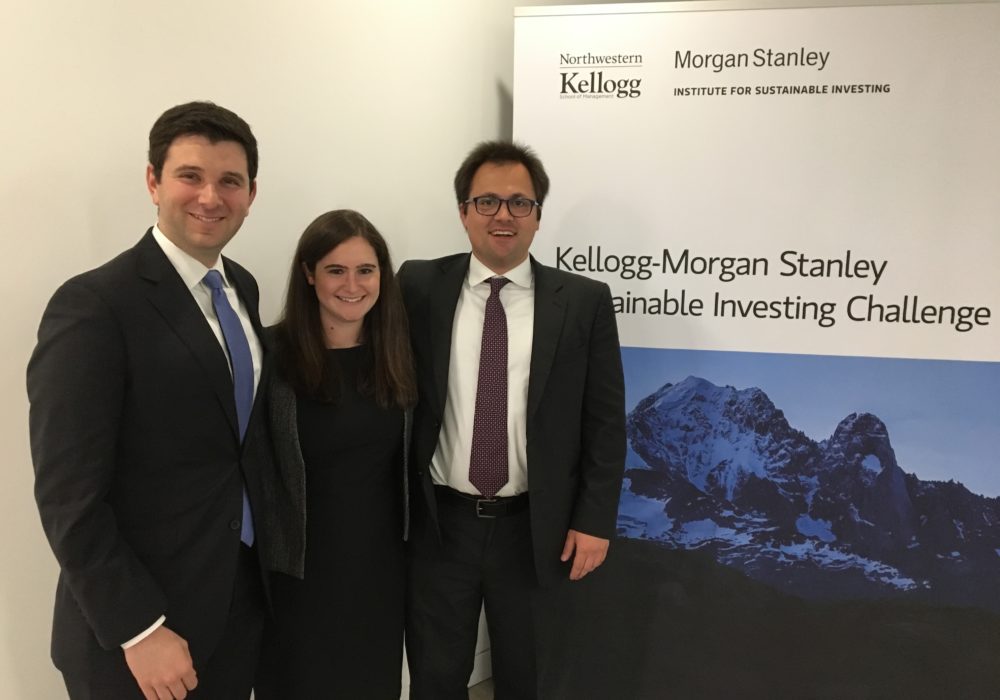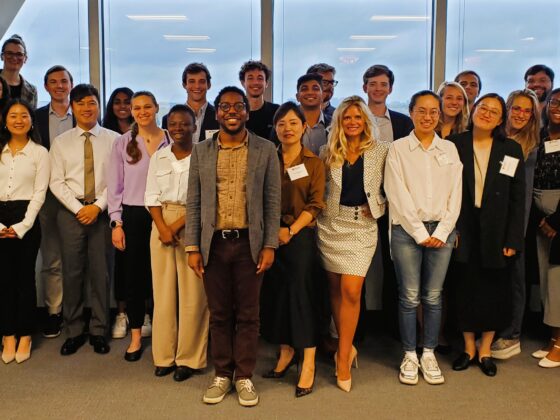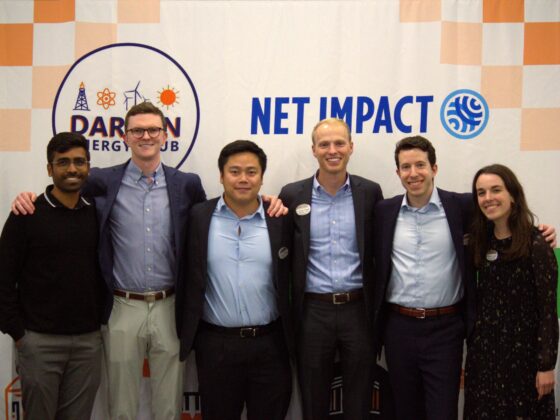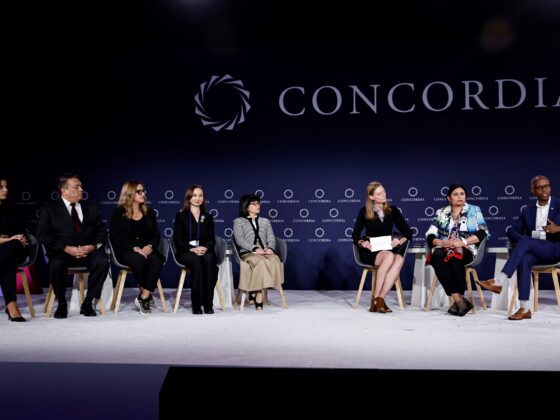Guest Post By Zach Ruchman, Michelle Hammer, Stewart Gray and Jess Cornell (MBA ’18)
Recently, our Darden MBA team had the opportunity to compete as finalists in the 8th Annual Kellogg-Morgan Stanley Sustainable Investing Challenge, and came in second place out of over 100 teams from around the world. The challenge is a global competition in which graduate students submit proposals offering a wide range of innovative financial vehicles that address social and environmental challenges – while delivering market returns. The event, which rotates among Morgan Stanley’s regional headquarters, was held this year in their London offices in Canary Wharf.
Our trip across the pond was the culmination of several months of work on a social impact-oriented investment proposal: the Resilient Infrastructure Swap Exchange (RISE), an insurance-linked security exchange that mobilizes funds for the construction of resilient infrastructure that can withstand the devastating effects of climate change. We proposed piloting this investment vehicle in Vietnam, which is one of the top 10 countries most likely to be severely impacted by climate change in the near future.
The Journey to London
The genesis of the idea started as a group project for Professor Mary Margaret Frank’s impact investing course. Our team began by brainstorming what social challenges we thought could be addressed by financial innovation and eventually decided on the lack of capital investment in resilient infrastructure in Southeast Asia, to combat the dire risks the region faces from rising sea levels and increased typhoon activity.
The spark that led to our ultimate proposal was the idea to create the equivalent of a credit default swap (CDS) for traditional catastrophe bonds, a type of insurance-linked security used extensively by insurance companies to manage their downside risk in the event of natural catastrophe scenarios that are worse than expected.
Simply put, RISE is an exchange for a new type of weather swap that is triggered by predetermined levels of typhoon damages in Vietnam (for example, when $2 billion of damages have been incurred). When the swap is issued, 5 percent of the swap proceeds are diverted to fund resilient infrastructure projects in the area. However, if the trigger is reached, additional funds go toward rebuilding with resilient infrastructure, ensuring that we leverage these moments of infrastructure mobility to rebuild better.
Creating an exchange means that until the trigger is reached, a liquid market exists for the swap, allowing all counterparties to continuously monitor and manage their individual liquidity needs. The swap could also be used as a form of insurance for local communities in Vietnam, where insurance penetration is extremely low and faces significant structural barriers.
Beyond the Competition
In addition to the pitches from the 12 finalist teams, the event featured a variety of opportunities to network with members of the senior leadership team at Morgan Stanley and our panel of judges, who ranged from securities lawyers to institutional investors, investment consultants, and representatives from major development banks such as KfW and the European Bank for Reconstruction and Development.
The remarks from keynote speaker Generation Investment Management co-founder David Blood were a key highlight of the event. Mr. Blood, who co-founded Generation alongside former Vice President Al Gore, spoke to us about his view on impact investing, specifically that “all investing has impact.”
Blood encouraged us to use a sustainable, impact-aware model for all investing decisions and to remember that, as with all management decisions, “measurement is a critical element” to making sure that we both understand and actively manage the types and magnitudes of impact of the companies in which we invest. These comments resonated with our team, as we had grappled with these same challenges and conversations about how to define and measure impact throughout the past quarter in our impact investing course.
If you are interested in learning more about the details of RISE, or the proposals of any of the other competitors, you can find our prospectus and final presentation on the Kellogg-Morgan Stanley Sustainable Investing Challenge website.
Our team would like to thank all of our professors and mentors who were critical in helping us craft and refine our proposal, and the Institute for Business in Society for its generous support.





